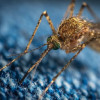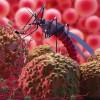.png)
Mpox Vaccine in India: Availability, Eligibility, and Benefits
The Mpox vaccine has become a critical tool in controlling the spread of the virus, especially in countries experiencing outbreaks. In India, as the number of reported Mpox cases rises, the demand for vaccines has grown. This article explores the current availability of the Mpox vaccine in India, who is eligible for vaccination, and the potential benefits it offers in reducing transmission and safeguarding public health.
Mpox, historically known as Monkeypox, has been progressively gaining attention due to its potential to cause significant public health concerns. Characterized by symptoms similar to smallpox, Mpox necessitates effective preventive measures, including vaccination. With India being a densely populated country, the risk of spreading infections is substantial.
This article provides insight into the current landscape of Mpox vaccination in India, including challenges and future directions.
Understanding Mpox
Mpox is a zoonotic viral disease caused by the Monkeypox virus, a member of the Orthopoxvirus genus. Its transmission occurs through contact with infected animals, humans, or contaminated materials. Symptoms of mpox typically include fever, rash, and swollen lymph nodes, and the disease can lead to severe complications in vulnerable populations.
Need for vaccination
There is currently no FDA-approved treatment for mpox, and managing strategies primarily focus on symptomatic relief and averting clinical complications. Therefore, vaccination plays a crucial role in both preventing infection (pre-exposure prophylaxis) and minimizing associated risks. Beyond individual protection, widespread vaccination drives can contribute to community immunity, significantly reducing transmission rates and the threat of outbreaks. The World Health Organization (WHO) recommends vaccination for at-risk populations, including healthcare workers and individuals in regions with reported cases.1,2
As per CDC, it is important to get vaccination against Mpox if:
You have had known or suspected exposure to someone with mpox.
You had a sexual partner in the past two weeks who was diagnosed with mpox.
You identify as gay, bisexual, or transgender and, in the past six months, have experienced any of the following:
A diagnosis of one or more sexually transmitted infections, such as chlamydia, gonorrhea, or syphilis.
Multiple sexual partners.
You or your partner have engaged in sexual activity at large commercial events or in areas where mpox transmission is active.
You are at high risk of occupational exposure to orthopoxviruses, such as through work in laboratories or healthcare settings.1,2
Vaccines for Mpox
Although no vaccines are approved explicitly for mpox, the virus's close relation to smallpox means that Vaccinia virus vaccines, originally used to prevent smallpox, can also provide immunity against mpox. However, the original smallpox vaccines are no longer used due to significant side effects. Following the 2022 mpox outbreak, more stabilized versions of these vaccines—such as ACAM2000, MVA-BN, and LC16—were developed. These newer vaccines have been shown to offer effective cross-protection against mpox with a better safety profile.
ACAM2000: This is a second-generation live Vaccinia virus vaccine. The Food and Drug Administration (FDA) authorized and licensed this vaccination for smallpox and Mpox in the United States for individuals aged 18 to 64. It is given as a single dose, and a booster dose can be given every three years to those exposed to highly virulent stains. Common adverse events include injection site reactions, fever, lethargy, headaches, and malaise.
MVA-BN (Jynneos, Imvamune, or Imvanex): This is a third-generation vaccine that has been approved for smallpox and Mpox in several countries. It is given subcutaneously in two doses, 28 days apart. It has a better safety profile compared to ACAM2000 but might be ineffective in immune-compromised individuals.
LC16: This live attenuated virus vaccine has been licensed in Japan but has not been approved by the FDA for Mpox prevention.3-4
In India, the Serum Institute of India (SII), which developed Covishield, has proposed to invest in the development of a new messenger RNA-based vaccine in association with its global partner Novavax.5
India's Vaccination Strategy and Challenges
At present, the US FDA has licensed only two live MPX vaccines, JYNNEOS, which has the fewest side effects. This warrants the need to develop a potent MPX-specific vaccination with fewer adverse effects.
While significant strides are being made, several challenges remain:
Vaccine Accessibility: Given India's population and its sole manufacturer's limited ability to produce JYNNEOS, researchers are working to produce a vaccine domestically to reduce our need for it. Thus, ensuring equitable access to vaccines across different regions, especially remote and rural areas, is a major challenge.
Logistical Issues: India lacks a national vaccine delivery system interlinked with immunization. Public health is decentralized, and state governments control vaccine distribution. Hence, owing to their unique temperature and storage needs, efficient cold chain management and distribution networks are required to provide vaccines in rural and distant parts of the nation.
Public Hesitancy: Overcoming vaccine hesitancy poses a significant challenge for the Indian population; hence, debunking myths, removing misleading information from social media, and sustaining vaccine awareness are critical.4
In an effort to contain the spread of Mpox infectious disease, the Union Ministry of Health and Family Welfare of India has recently decided to implement the ring vaccination strategy. Ring vaccination, i.e., vaccinating close contacts of confirmed cases, has proven an efficient solution as the disease has a slow transmission rate and a long incubation period. The application of ring vaccination has shown its benefits by breaking the Mpox transmission chain, acting as post-exposure prophylaxis, and preventing severe disease development while addressing associated challenges with limited vaccine availability. However, this strategy will work best when there is robust testing and availability of contact-tracing facilities. Another key component of the Mpox vaccination program might include determining the appropriate target group for each vaccine based on the risk and benefit analysis. 6,7
Conclusion
As India navigates the complexities of Mpox prevention and control, the role of vaccines becomes increasingly significant. Through proactive public health measures, robust research initiatives, and strategic partnerships, India is poised to safeguard its population against this emerging zoonotic threat. Continued vigilance and adaptability will be key to mitigating the impact of Mpox in the years to come.
References
Centers for Disease Control and Prevention (CDC). Monkeypox. [Internet]. [cited2024 Sept 07] Available at: https://www.cdc.gov/poxvirus/mpox/about/index.html
World Health Organization (WHO). Monkeypox. [Internet]. 26 Aug 2024. [cited 2024Sept 07]. Available at: https://www.who.int/news-room/fact-sheets/detail/mpox
Pischel L, Martini BA, Yu N, Cacesse D, Tracy M, Kharbanda K, Ahmed N, Patel KM, Grimshaw AA, Malik AA, Goshua G, Omer SB. Vaccine effectiveness of 3rd generation mpox vaccines against mpox and disease severity: A systematic review and meta-analysis. Vaccine. 2024 Jun 20:S0264-410X(24)00694-7. doi: 10.1016/j.vaccine.2024.06.021. Epub ahead of print. PMID: 38906763.
Watarkar S, Upadhyay P, Ghosh S, Godbole AA, Kishori SK, Mohanty A, Padhi BK, Sah R. Vaccines for monkeypox disease and challenges in its production and distribution: a lesson from COVID-19 pandemic. Int J Surg. 2023 Mar 1;109(3):536-538. doi: 10.1097/JS9.0000000000000016. PMID: 36906772; PMCID: PMC10389190.
Singh T, Baskaran P, Raghav P, Naveen KH. Monkeypox: Current Situation in India: An Old Virus, A New Menace? Indian J Community Med. 2022 Oct-Dec;47(4):628-630. doi: 10.4103/ijcm.ijcm_719_22. Epub 2022 Dec 14. PMID: 36742949; PMCID: PMC9891061.
Choudhary OP, Priyanka, Fahrni ML, Saied AA, Chopra H. Ring vaccination for monkeypox containment: Strategic implementation and challenges. Int J Surg. 2022 Sep;105:106873. doi: 10.1016/j.ijsu.2022.106873. Epub 2022 Aug 30. PMID: 36055631; PMCID: PMC9424115.
Chakraborty S, Mohapatra RK, Chandran D, Alagawany M, Sv P, Islam MA, Chakraborty C, Dhama K. Monkeypox vaccines and vaccination strategies: Current knowledge and advances. An update - Correspondence. Int J Surg. 2022 Sep;105:106869. doi: 10.1016/j.ijsu.2022.106869. Epub 2022 Aug 30. PMID: 36049620; PMCID: PMC9533893.







Please login to comment on this article